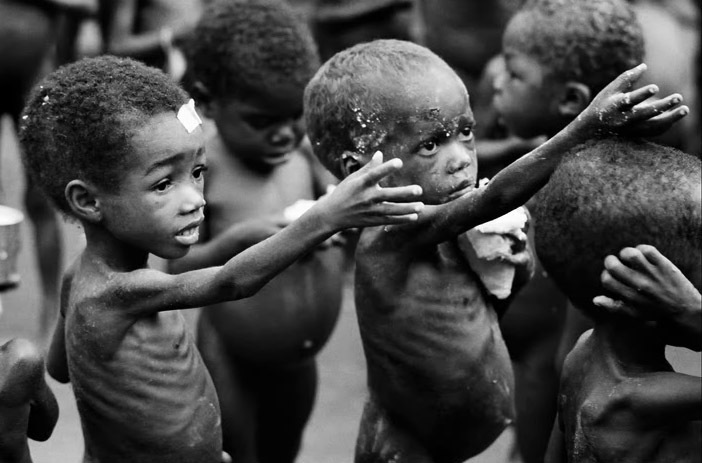Poverty: The Real Weapon of Mass Destruction
Africa
Unidentified
Pakistan
Indonesia
Occupy Wall Street protestors in New York via Facebook
I can post pictures that are more graphic but I won't because I know most of us don't want to see them.
They're not pictures of glamourous celebrities, air-brushed models or cute, happy children.
They're pictures of heartbreaking situations that many of us can't relate to.
You know there's something seriously wrong with the way this world works
when you can't relate to how billions of other people lead their daily lives.
Poverty exists everywhere.
In developing nations such as Malaysia, Indonesia, India, Pakistan, Philippines,Cambodia, Thailand,
Afghanistan, Saudi Arabia, Egypt, Iraq, Palestine, just to name a small few, and even in wealthy countries like America.
And we may think we live in the same city, country or planet as they do...
but in reality their world is completely different to ours.
At least 80% of humanity lives on less than $10 a day.
1 billion children live in poverty. That's every second child in this world.
1.6 billion people — a quarter of humanity — live without electricity.
(And we can't imagine living a day without the Internet or our cellphones)
According to UNICEF, 22,000 children die each day due to poverty. And they “die quietly in some of the poorest villages on earth, far removed from the scrutiny and the conscience of the world. Being meek and weak in life makes these dying multitudes even more invisible in death.”
The wealthiest nation on Earth has the widest gap between rich and poor of any industrialized nation.






Comments
You're right, the model of government isn't helping and I think restructuring needs to be done to focus on these social issues. Many children, as the future of our world, are abused, neglected, undernourished and disempowered.
As you said, developed countries need to solve their own issues as well. I don't think there's a way for us to completely eradicate poverty at the rate we are going but we can alleviate the situation by doing whatever we can.
The global system of poverty is a direct cause of free-market economic 'development'. You might like to also read about systems theory by Immanuel Wallerstein.
If we only fix the distribution of wealth in the world, we would fix global poverty. Fact is, poverty should be a non-issue, because there are plenty of resources to go around the planet's 7 billion population; however this wealth is largely concentrated within the 'core' states that control the system.
Charitable 'Aid packages' may alleviate the suffering for a few people in the short term, but the UN and other anti-poverty agencies are not designed to counter the growth of poverty in the world, they are only there to put small band aids on the bigger problems, and make people believe that they are actually 'fighting poverty' in the 'third world'.
And I think we have to start focusing on those bigger problems, if we are serious about fighting and eliminating global poverty.
Just imagine if the whole world paid their share of zakat :)?
At the same time I see many individuals who are passionate about global issues & inequalities ignore local issues. Ignore the plight in their own communities, of poverty, of not taking part in rehabilitating lost teens, mentoring children from deprived backgrounds, organizing sports for kids, clearing up parks, helping the elderly lead more productive lives. There is no sense of community responsibility.
S
they go from self-reliance and god-given farming to refugee camps and tents.
when they cannot grow their food and tend their land, because of war, they are subject to refugee camps which create dependency.
this is where hunger, sickness and disease linger.